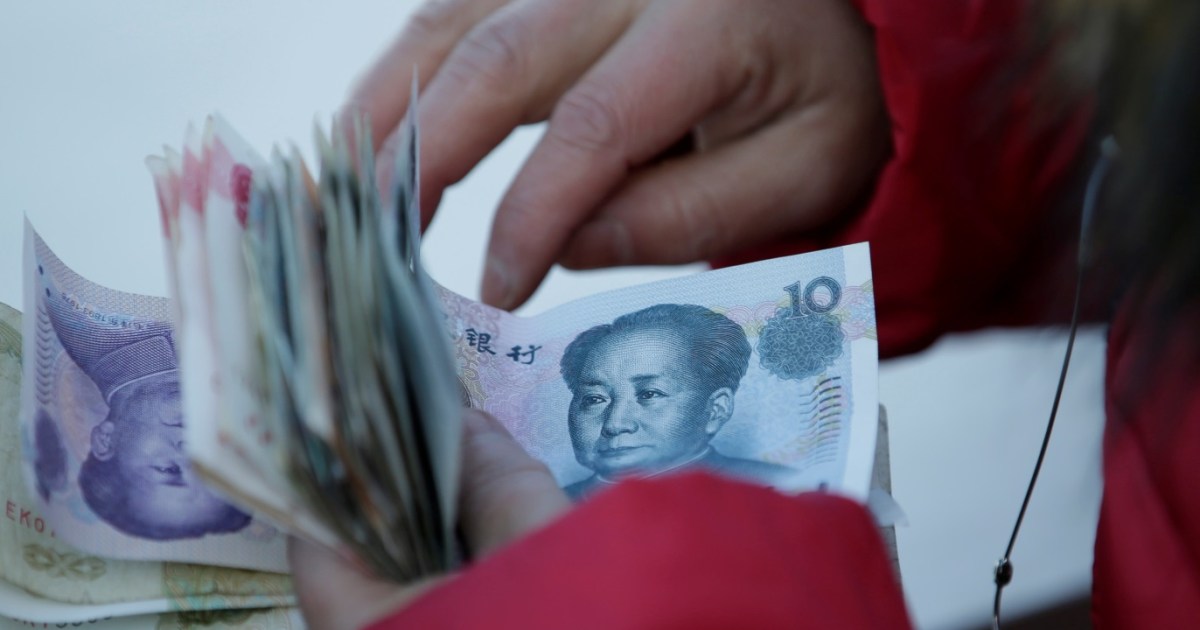A Chinese researcher said that a study conducted as early as 2013 showed that China's economy will not continue to grow at a high speed, but will decline in stages.
And Chan Cong, founder and chief researcher at the Anbound Think Tank, warned that China is about to enter a precarious era of high inflation.
He added that the average level of economic growth in China every 10 years - which the researcher considers an ideal scenario - will decrease by one percentage point, and that growth after 3 decades will reach 5%, which will consequently constitute a consumption-oriented society.
The end result, according to Kong, is a tendency to grow in a hierarchical manner, which is called the “pyramid model.”
The definition of the economic growth rate - as explained by the Chinese researcher in his article in the American newspaper "Modern Diplomacy" - is part of the foundational research, adding that the research conducted by the Unbound Center indicated that China's growth will gradually decrease to 5% down from more from 7% averaged in 2013.
This long-term analysis is evidence of a change in the Chinese economic model at a time that was dominated by the idea of growth through investment, and instead suggested a kind of "negative growth" model of the economy, says Chan Kong in his article.
This result, of course, contrasts starkly with the optimistic view of Chinese economic growth at the time, as the basic view adopted by a number of famous economists was that the Chinese economy could continue to grow at a high speed “for decades”, but the problem is that “growth The negative" for the Chinese economy has begun to decline, according to the article.
There are many possible reasons for this conclusion, because by 2022 the Chinese economy entered the stage of setting the growth rate to 5%, almost immediately.
The Chinese researcher believes that such an economic growth curve is very steep, and steeper than originally expected in 2013.
It took only 7 years to complete the deterioration phase, which researchers expected to take 30 years, and this means - in the view of Kong - that the Chinese economy is in a serious and rapid decline, which clearly indicates that it is already in a state of "negative growth" significantly.
What is the impact of negative growth on China?
Before answering, the writer wonders that China will enter an unstable era of high inflation, which in turn will greatly reduce the possibility of benign adjustment and cause disastrous consequences of economic deflation.
Since economic growth represents and reflects market size and income, "a rapid decline in economic growth means a relative contraction in the market and lower income."
Such a scenario may be frightening, according to the founder of the Unbound Center, which specializes in public policy research covering geopolitics, international relations, urban and social development, industrial issues, and macroeconomics.
The writer goes on to say that when costs are almost set so that they cannot be reduced and reduced, this decline in income and the contraction of markets will lead to pressure on the supply and supply side significantly, and these factors soon combine to cause unexpected inflationary pressures.
In the face of higher levels of inflation, many companies and businesses will not be able to maintain their productivity, and in light of the inability of many individuals and companies to deal with the situation, the cycle will repeat itself, which will lead to a lower level of economic growth, according to the lawsuit of a Modern Diplomatic article.
And when that happens - the writer continues - the markets will shrink, incomes will fall, inflation will become more dangerous, and thus a truly dangerous era has come into being.
In the face of this situation - which Kong describes as dangerous - no method or approach will be able to achieve results as long as the logic behind it and the economic structure of society has been undergoing uncontrollable changes.
The researcher concludes in the conclusion of his article by emphasizing that the world "will see a different strange China in the future."

